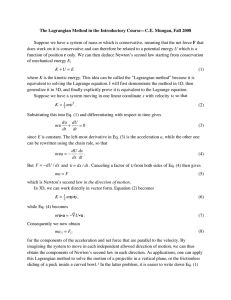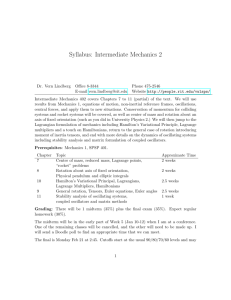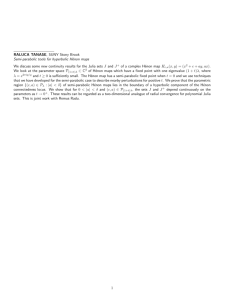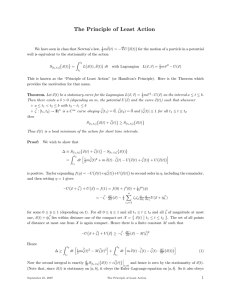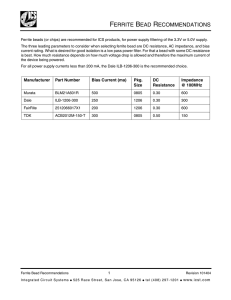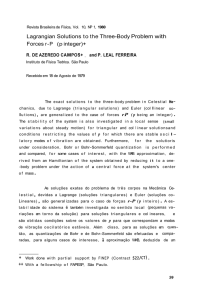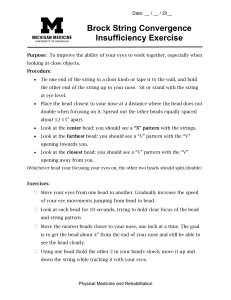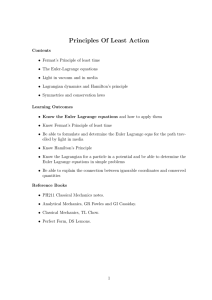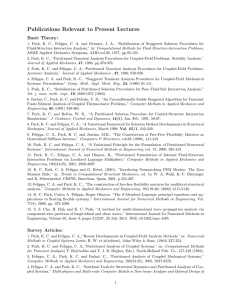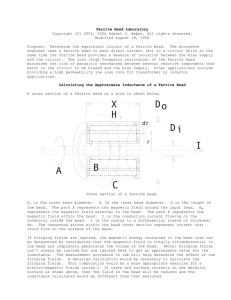Coupled Oscillations Interaction-5 Use Lagrange Mechanics to solve the following problem:
advertisement
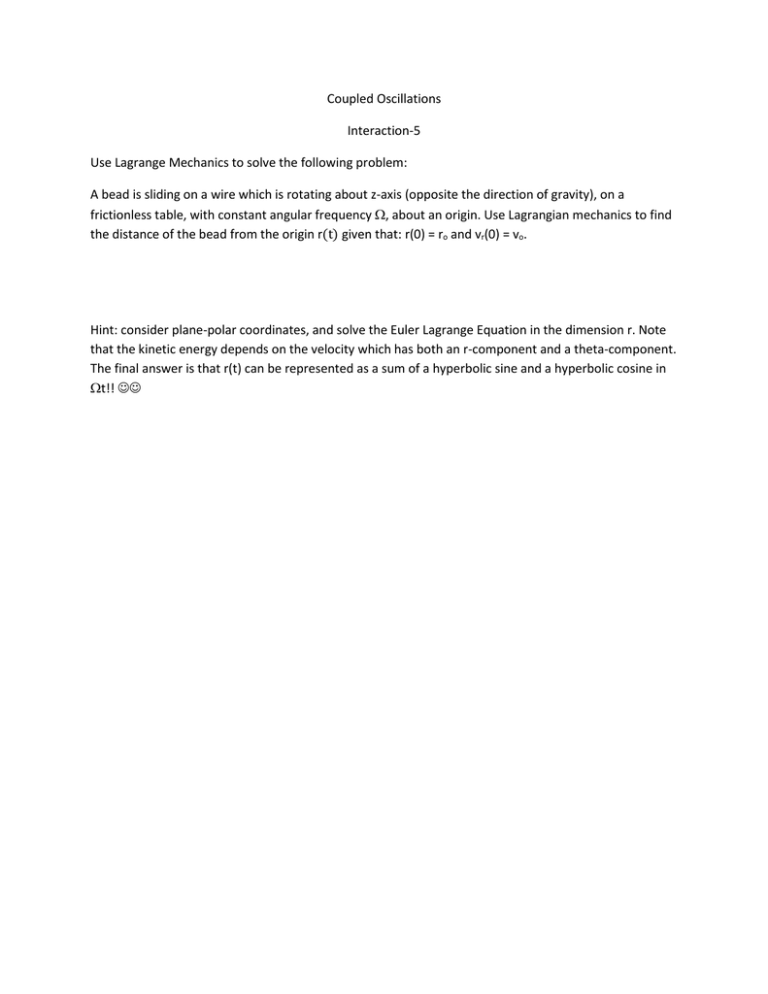
Coupled Oscillations Interaction-5 Use Lagrange Mechanics to solve the following problem: A bead is sliding on a wire which is rotating about z-axis (opposite the direction of gravity), on a frictionless table, with constant angular frequency , about an origin. Use Lagrangian mechanics to find the distance of the bead from the origin r(t) given that: r(0) = ro and vr(0) = vo. Hint: consider plane-polar coordinates, and solve the Euler Lagrange Equation in the dimension r. Note that the kinetic energy depends on the velocity which has both an r-component and a theta-component. The final answer is that r(t) can be represented as a sum of a hyperbolic sine and a hyperbolic cosine in t!!
